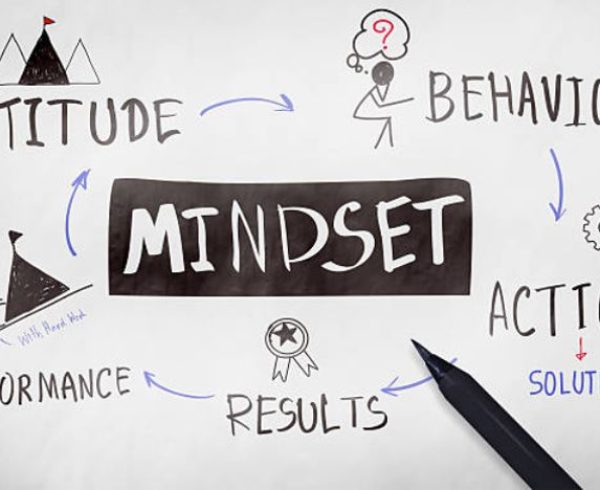Mindfulness is a psychological practice that decreases stress and increases productivity. It’s a state of active attention. It means focusing on the present moment, and letting thoughts of the past or future pass by without dwelling.
In the following series of articles, we’ll discuss why mindfulness matters, the mindfulness mindset, mindfulness practices, and how to adopt a mindful culture.
To start, you’ll learn how a mindfulness culture will unlock optimal productivity for you and your organization.
What Is Mindfulness?
To begin, let’s define the term mindfulness. Mindfulness is a state of being that requires attention to the present moment. Those in a state of mindfulness observe their thoughts and feelings without judgment. They don’t perceive their thoughts as good or bad; they just are.
Being mindful means being in the present moment. Being mindful is to focus on the present, rather than anticipating the future or dwelling on the past.
By using this present-focused mindset, you’ll be able to avoid self-criticism while simultaneously managing your emotions. Since mindful individuals are focused on the here and now, they don’t criticize themselves or others as frequently. They are focused on the tasks and relationships in front of them in that moment, not in the past or in the future.
How Mindfulness In The Workplace Increases Productivity
Mindfulness is key for an engaged work culture. By adopting a mindfulness culture in the workplace, you’ll gain the following benefits.
-
- Reduced stress. Mindfulness reduces stress. Employees that work for companies with a mindfulness culture have a much lower stress level than those who don’t practice mindfulness. According to Mindful Mastermind, 80% of workers say they feel stress at work and need help managing it. By engaging in mindfulness, you’ll help your employees feel less stressed and manage their emotions more effectively. This is important for productivity because less stressed workers equal more productive workers.
- Better decision-making. People make better decisions when they are less stressed. Cognitive behavior practices strengthen the mind. According to the National Library of Medicine, contemplative practices, including meditation, affect decision making. Those who participate in meditation and other mindfulness methods are able to make better decisions.
- Stronger focus. Mindful employees have stronger focus. The National Library of Medicine cited a 10-day mindfulness meditation program. This program proved the effects of meditation. After practicing mindful meditation for 10 days, individuals in the program had greater capacity for sustained attention, working memory, and executive function.
- More attention to detail. Practicing mindfulness improves attention to detail. It improves your focus, and thus allows you to be more present and observant in the current moment.
-
- Increases employee engagement. Mindfulness culture vastly increases employee engagement. This is essential to your organization because companies with engaged employees outperform those with disengaged employees by 200%, according to Mindful Mastermind.
- Decreases absenteeism. Studies have shown that companies who have adopted a mindfulness culture had an 85% decrease in absenteeism. Being mindful increases employee engagement, which in turn makes employees more eager to come to work. Moreover, according to the Mayo Clinic, meditation, which is a mindfulness practice, has been shown to decrease job burnout.
- Increases productivity. Practicing mindfulness in the workplace increases productivity by 120%. According to the Wharton School of Business at the University of Pennsylvania, focusing on the present increases empathy and helpfulness. Mindful workers are more generous in the amount of time they are willing to give to their coworkers. This helps your organization as employees are more productive overall when they are willing to help each other.
- Reduces health-related costs. Stress related illnesses, such as depression and heart disease, can cost businesses $200 to $300 billion per year in lost productivity. By reducing employee stress, employees will be healthier. This reduces insurance costs and productivity losses for businesses.
Creating A Culture of Mindfulness
To start creating a culture of mindfulness in your workplace, you must first become mindful yourself. Mindfulness is a mindset. Cultivating mindfulness for yourself and for your work culture will take time. However, these practical steps will help you work towards creating that culture in your workplace.
First, a simple step you can take towards mindfulness is practicing breathing techniques. Taking deep breaths is in itself a method of meditation. By taking deep breaths, you will become more calmer. During the work day, it may be helpful to align breathing practices with repetitive tasks.
For example, if you answer emails multiple times a day, you could make a point to take three deep breaths before starting an email session. Doing so will help you align your meditation practice with your daily tasks.
Practicing mindfulness doesn’t have to be formal. It can be as simple as taking deep breaths at your desk or focusing on the present moment.
Due to its ability to reduce stress and improve cognitive skills, mindfulness has been embraced by many organizations. For example, Google offers meditation and yoga programs to their staff. They have many programs available, including Search Inside Yourself and Mindfulness Based Stress Reduction.
These programs are an effective way to provide a short-term boost to employee mindfulness. For long-term benefits, mindfulness must be ingrained in the company culture.
Google is regularly listed as one of the best places to work because of their focus on employee wellness and mindfulness culture.
Unlock The Power Of Mindfulness With Mythos Group
Now you know what mindfulness is, how mindfulness optimizes productivity, and how to begin creating a culture of mindfulness. Mindfulness is an important mindset for business leaders to adopt. It reduces stress, increases employee engagement, and reduces costs.
If you want your employees to be more engaged, more productive, and more helpful towards one another, we suggest investing in mindfulness education and programs. In our next article, we’ll take a deeper look into how to cultivate a mindfulness mindset.
If you’d like to learn how to improve your company culture through mindfulness, contact Mythos Group today! We look forward to collaborating with you.







